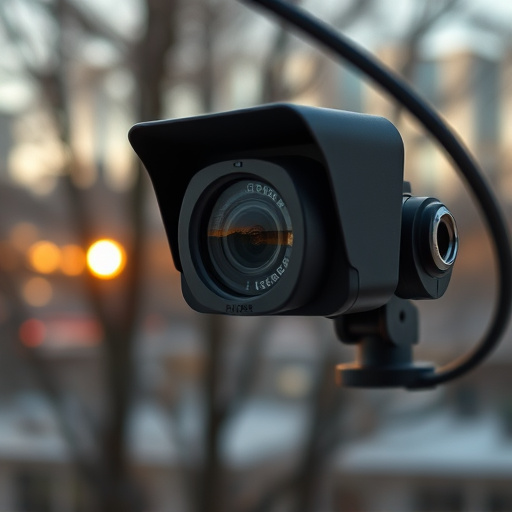Hidden tiny cameras for home monitoring in rental properties raise serious privacy concerns. Landlords secretly install these devices in everyday items like smoke detectors to monitor tenants' activities without consent, infringing on their right to privacy and potentially facing legal consequences for illegal surveillance. Tenants should be vigilant and take proactive steps to protect their privacy by inspecting common areas, staying informed, and reporting any violations.
In today’s digital age, tenants may not realize their rental properties could be hidden surveillance spots. Understanding secret cameras, where landlords hide them, and their legal implications is crucial for protecting your privacy. This article delves into the common places where tiny cameras are concealed, offers tips on detecting hidden surveillance, and highlights the importance of home monitoring without compromising personal space.
- Understanding Hidden Cameras in Rentals
- Common Places Landlords Hide Tiny Cameras
- Legal Implications of Unknowing Surveillance
- Protecting Your Privacy: Detecting Secret Cameras
Understanding Hidden Cameras in Rentals
Hidden cameras in rental properties, often disguised as everyday objects like smoke detectors or light switches, raise significant privacy concerns among tenants. These tiny cameras for home monitoring, also known as surveillance devices, are becoming increasingly sophisticated and easier to install, making them a silent but pervasive presence in many homes. While landlords argue that they are essential tools for maintaining security and deterring crime, tenants often view them as an intrusion into their personal lives.
Understanding the extent of this issue requires recognizing how these hidden cameras operate and where they might be placed. Landlords may use them to monitor tenant activities, record conversations, or capture sensitive information, all without the knowledge or consent of the occupants. In today’s digital era, where data is a valuable commodity, such secret surveillance spots in rental properties can have profound implications for privacy rights and security.
Common Places Landlords Hide Tiny Cameras
Landlords often seek creative and hidden locations to install tiny cameras for home monitoring, taking advantage of rental property owners’ lack of awareness. Common spots include smoke detectors, which can be easily modified or replaced with surveillance devices, providing a discreet way to watch entry points. Another favorite hiding place is inside faux electrical outlets, allowing cameras to blend in seamlessly while capturing activity.
These tiny cameras are also known to be tucked away in seemingly harmless items like fire alarms, light switches, and even door handles. In the pursuit of home monitoring, landlords may also drill small holes and insert cameras into walls or ceilings, taking advantage of every nook and cranny within a property.
Legal Implications of Unknowing Surveillance
The presence of hidden surveillance devices in rental properties raises significant legal concerns. Tenants have a reasonable expectation of privacy, and the installation of tiny cameras for home monitoring without their knowledge or consent is a breach of this trust. This practice not only invades personal space but also potentially violates laws related to wiretapping and electronic surveillance.
Many countries have strict regulations regarding the use of surveillance technology, especially in residential settings. Unlawful placement of such devices can lead to severe legal repercussions for landlords or property managers. Tenants may seek legal action, including suing for invasion of privacy, emotional distress, or even seeking damages under data protection acts, particularly if sensitive personal information has been captured by these tiny cameras.
Protecting Your Privacy: Detecting Secret Cameras
Protecting your privacy is a paramount concern, especially with the rise of tiny cameras for home monitoring, which can be secretly installed in rental properties. Tenants have a right to expect a certain level of security and peace of mind, but hidden surveillance devices can create an unsettling environment. It’s essential to remain vigilant and proactive about potential intrusions into your personal space.
Regularly inspecting common areas, like hallways and lobbies, for any suspicious hardware or devices is a good starting point. Look out for unfamiliar wires, strange fixtures, or even small, unassuming objects that could be hidden cameras. Technology has made these tiny cameras nearly invisible, making it crucial to educate yourself and stay alert. By staying informed about the latest methods used in secret surveillance, you can better detect and report any violations of your privacy rights.
While tiny cameras in rental properties may seem like a modern convenience for landlords, it’s crucial to understand their legal and privacy implications. As tenants, being aware of potential hidden surveillance spots is essential for protecting your personal space. By staying informed about common placement areas and learning how to detect these devices, you can take proactive steps to maintain your privacy. Remember, open communication with your landlord regarding security measures is always a good practice, ensuring a safe and transparent living environment.
